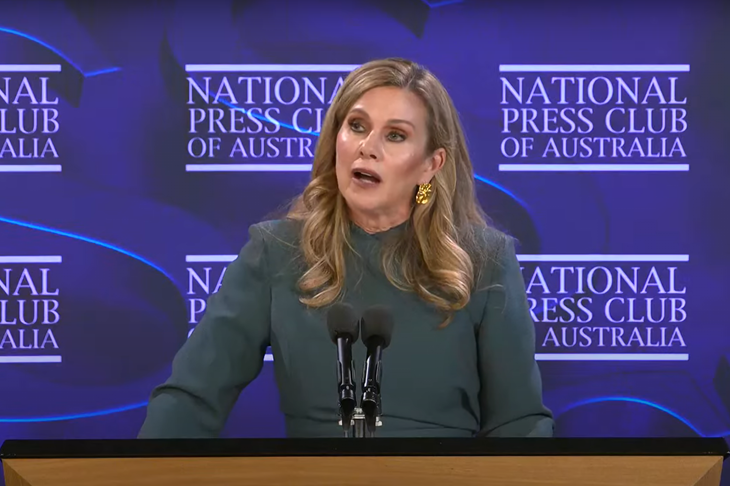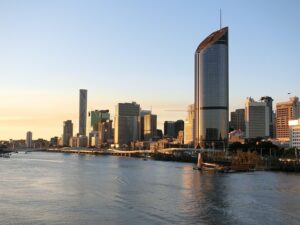
Concerns are mounting in Australia as the nation grapples with the implications of increasingly stringent surveillance measures on public discourse. The right to free speech appears to be steadily eroding in a climate where dissenting opinions are monitored and sometimes suppressed under the pretext of ensuring safety. This shift has raised alarms among civil rights advocates, who argue that taxpayer funding is facilitating a surveillance culture rather than protecting democratic values.
The emergence of a surveillance state is evident, with various tracking initiatives reportedly targeting online content shared by Australians. According to documents obtained under Freedom of Information legislation, the eSafety Commissioner has engaged third-party companies to monitor social media posts, including those made by prominent medical professionals, journalists, and politicians. This monitoring is not necessarily linked to incitements of violence but is primarily focused on dissenting viewpoints concerning government policies on topics such as Covid-19 and environmental regulation.
A significant increase in the eSafety Commissioner’s budget underscores this growing trend. The budget swelled from $10.3 million in the 2018-19 fiscal year to a projected $42.5 million for 2023-24, representing a staggering 262 percent increase in a mere five years. For the current fiscal year, over $5 million has been allocated explicitly for monitoring harmful content online, a term that encompasses broad surveillance practices.
Impact on Homelessness and Economic Strain
Amidst the increasing expenditure on surveillance, socioeconomic issues persist in Australia. As of the 2021 Census, an estimated 122,494 individuals were experiencing homelessness, marking an increase of 5.2 percent since 2016. The data reveals that homelessness affects both genders, with males accounting for 68,516 cases and females for 53,974. Notably, the rise in female homelessness is disproportionate, with an increase of 10.1 percent since the last Census.
While government resources are directed towards monitoring social media, many Australians find themselves struggling to balance basic living expenses. Reports indicate that one in five households is under mortgage stress, and over 26 percent of renters allocate more than 30 percent of their income to housing costs. This financial pressure raises questions about the priorities of government spending in light of pressing social issues.
Who is Being Monitored?
The reach of this surveillance extends beyond political figures to ordinary citizens who express their grievances online. Individuals sharing personal experiences related to adverse effects from Covid-19 vaccinations or those who have lost loved ones have found their voices silenced or their content suppressed. Thousands of workers dismissed for refusing the vaccination have similarly been marginalized, their stories often excluded from public discourse.
The dominance of narratives surrounding climate change and environmental policies leaves little room for alternative viewpoints. This narrowing of debate is reminiscent of historical precedents where controlling the flow of information was crucial for consolidating power. Surveillance practices, framed as mechanisms for harm prevention, increasingly resemble tools for filtering dissent and maintaining governmental narratives.
According to the eSafety Commissioner’s 2023-24 Corporate Plan, enforcement mechanisms allow regulatory actions based on complaints, even if the content in question is not illegal. This raises significant concerns regarding the potential infringement of the implied constitutional freedom of political communication, as recognized in the landmark case of Lange v ABC (1997).
The implications of these trends are profound. Citizens are funding their own suppression through taxes that support the very institutions monitoring and regulating their speech. This contradiction has sparked calls for a reassessment of the eSafety Commissioner’s powers and the broader surveillance framework.
Calls for Action
Advocates for civil liberties urge Australians to take action against bureaucratic censorship and demand greater transparency regarding the companies involved in these surveillance efforts. Questions about the metrics used for content suppression and the rationale behind monitoring practices remain largely unanswered.
The eSafety Commissioner, originally established to protect children online, now wields unprecedented powers under the Online Safety Act 2021. As the situation unfolds, it is essential for citizens to reclaim their rights to open debate and dissent, ensuring that the legacy of free speech is preserved for future generations.
The trajectory of governmental surveillance in Australia poses a significant threat to the democratic values that underpin the nation’s society. Without active engagement and advocacy for transparency, the Australia of tomorrow risks becoming a space where voices of dissent are systematically silenced.






